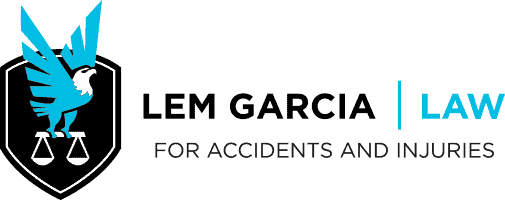A guide to personal injury depositions and what to expect
When you sue a person or company for personal injury, you’ll typically be asked to attend a personal injury deposition. This process enables the court and the attorneys to obtain all the facts about your case before moving to trial. Find out what to expect in a personal injury deposition in this comprehensive guide.
What Is a Personal Injury Deposition?

A personal injury deposition is a procedure in the pre-trial information gathering process for personal injury cases. If you’re involved in a personal injury case, you’re required to be present at a specified place and time to go through a question-and-answer session with the attorney who represents the opposing party. During the deposition, you’ll have to swear under oath that you’ll provide information that’s true and correct to the best of your knowledge.
What Is the Purpose of a Personal Injury Deposition?
The purpose of a personal injury deposition is to collect important information about a personal injury case. Such information enables the opposing attorney and court officials to identify and evaluate the strengths and weaknesses of your claims. They’ll also use the information to gain a better understanding of the circumstances surrounding your injury.
While it’s unknown to many people, a personal injury deposition can also serve as a tool for strategizing a case. It shows the opposing attorney and your own attorney how you’ll testify during the trial. Such information can play an important role in helping the attorneys devise the right strategic plans for your personal injury case.
What To Expect During a Personal Injury Deposition?
Your personal injury deposition is one of the most important aspects of your personal injury case. The information you share and the way you share it may have a significant influence on the outcome of your case. This procedure may seem overwhelming because you’ll be giving your testimony in front of legal experts, and the information you provide can be used against you. The key to performing well during a deposition is to focus on one question at a time.
The process begins with you taking your oath. Then, you’ll sit down in front of the opposing attorney, who will start asking you questions about your personal injury case. A court reporter will be present to record the entire deposition using a stenograph machine. This enables the court to create a transcript that can be used during the trial. Typically, the opposing attorney will start by asking you if you’re aware of the following:
- You’re testifying under oath.
- Your testimony will be recorded and transcribed.
- You must answer questions verbally.
- You can make rectifications to your testimony.
- You’re allowed to say that you can’t remember certain details.
What Types of Questions Do You Need To Answer During a Deposition?
Before you start answering questions during a personal injury deposition, you have to be prepared to conduct yourself in a particular manner. Try your best to refrain from displaying frustration or anger and remain calm throughout the session. The opposing attorney will likely begin with basic background questions about your work and life. You can expect to be asked personal questions regarding your employment history, current income, and financial position. Most of these questions seek information that’s a matter of public record, so you should answer them honestly.
Additionally, the attorney will want to know if you’ve been previously involved in any legal claims or lawsuits. If you have a criminal record, you should be prepared to answer questions about it. The attorney may also ask you to discuss any injuries or illnesses you’ve experienced throughout your life. Try to answer these questions as accurately and truthfully as possible because most of the information requested is also public record.
Then, the opposing attorney will proceed to ask you questions about the matter at hand, which is your accident. If you were involved in a car accident, you’ll most likely have to provide information such as your destination at the time of the accident, the route you were taking, places you stopped along the way, and whether you used your turn signals. If you’re asked to gauge the speed of another vehicle, you should say that you don’t know.
Also, you’re required to provide information about your injuries, such as the type of treatment you’re undergoing and the name and contact details of your doctor. If you’re getting treatment from a chiropractor, you may be asked to explain why you chose this option. You should also expect to answer questions about any physical limitations or disabilities you’re currently experiencing.
What Happens After a Personal Injury Deposition?

After your personal injury deposition, a few things that are crucial to your case will occur, including:
- Preparation of the transcript: The court reporter will start preparing the transcript soon after the deposition. This process may take a few weeks.
- Review of the transcript: When it’s completed, the transcript will be given to both parties of the personal injury lawsuit. If you find any mistakes in the transcript, you should let your attorney know immediately.
- Evaluation of the transcript: After going through the transcript, your attorney will explain to you how the deposition may affect your case.
- Possible medical examination: The opposing party may ask you to undergo a medical exam. If this happens, your attorney will properly prepare you for it and collect all medical reports needed for negotiating a settlement.
- Trial or settlement: Your attorney will try to negotiate with the insurance company to reach a fair settlement. The negotiation process may take a long time because it involves a lot of investigation. If the insurer chooses not to offer a settlement, your attorney will discuss with you about going to trial. If you and your attorney win the case, you’ll receive a certain amount of money for your damages.
Depending on the severity of your injuries, it may take anywhere from a few weeks to a few years to settle your personal injury case. If you want to settle your case as quickly as possible, you should work with an experienced personal injury law firm such as Lem Garcia Law. Contact us today to speak with our knowledgeable and helpful legal experts.


